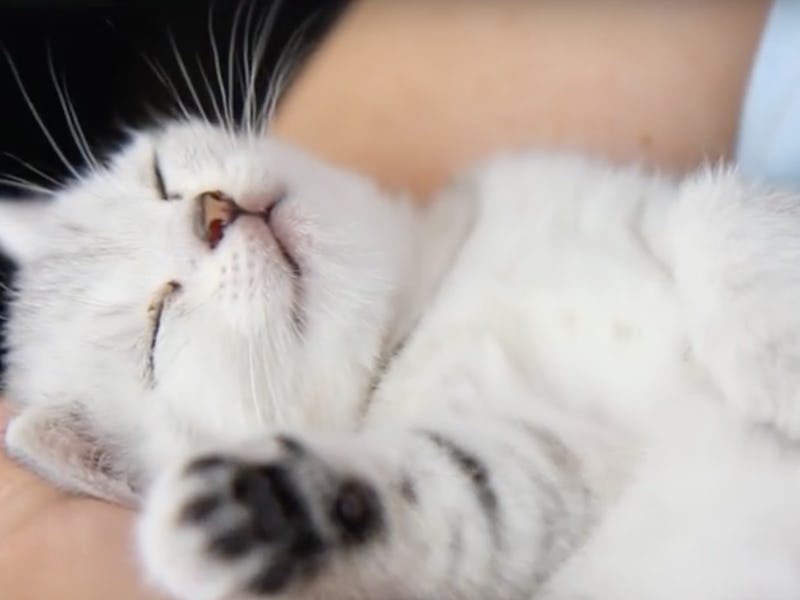Why Cats Want You to Pet Them in These Key Places, According to Science
Mystery solved.

Cats are funny, finicky creatures; when they require human affection, you’ll know.
Although every kitty has their own favorite spots to be pet, an animal behaviorist tells Inverse there are scientific reasons why cats tend to enjoy scratches in some places over others.
“I call them the ‘sweet spots,’” Amy Shojai, certified animal behavior consultant, tells *Inverse. “Good places are the cheeks and under the chin, because this is where the scent glands are located so the cats like to rub against objects (your hand) to share scent.”
Veterinarian Marty Becker offers similar advice.
“[Scratch at the] base of the chin,” he writes in Vetstreet. “Rub your cat gently along the underside of the chin, especially where the jawbone connects to the skull. You’ll likely get the purr-motor running hard, as your cat pushes into this pleasant caress.”
Miso curled up with her happy toy.
Believe it or not, there are a few studies in recent years that back this claim up. One, published in 2015 in the journal Applied Animal Behaviour Science, found that the 54 kitty subjects did indeed prefer face scritchy-scritches. Obviously, this is a super small sample size, and more research still needs to be done.
The most controversial petting zone is definitely the area at the base of the tail. This study concluded that stroking this area overstimulates cats, which could cause them to lash out. But other experts say some kitties actually enjoy getting stroked in this region.
“Some cats love the area above the tail,” Shojai says. “It creates the ‘elevator butt’ posture.”
Gratuitous picture of cats cuddling
As all cat owners have found out the hard way, there are definitely no-go places for touching your cat, too.
“Bad places include the tummy, where a cat will often grab and attack you,” Shojai explains. Basically, a cat interprets your gentle belly rub as an attack from a larger predator, causing it to reflexively react. The cat may try and grab your hands or bite you — but they’re not trying to be mean. It’s just their instincts kicking in.
Cats are truly enigmatic fluffs, but understanding them — even in tiny bits and pieces — can go a long way in improving your relationship with your pet. Besides, all cats are good, and this is all the more incentive to give them head scritches and wet food.
No, a cat did not write this.